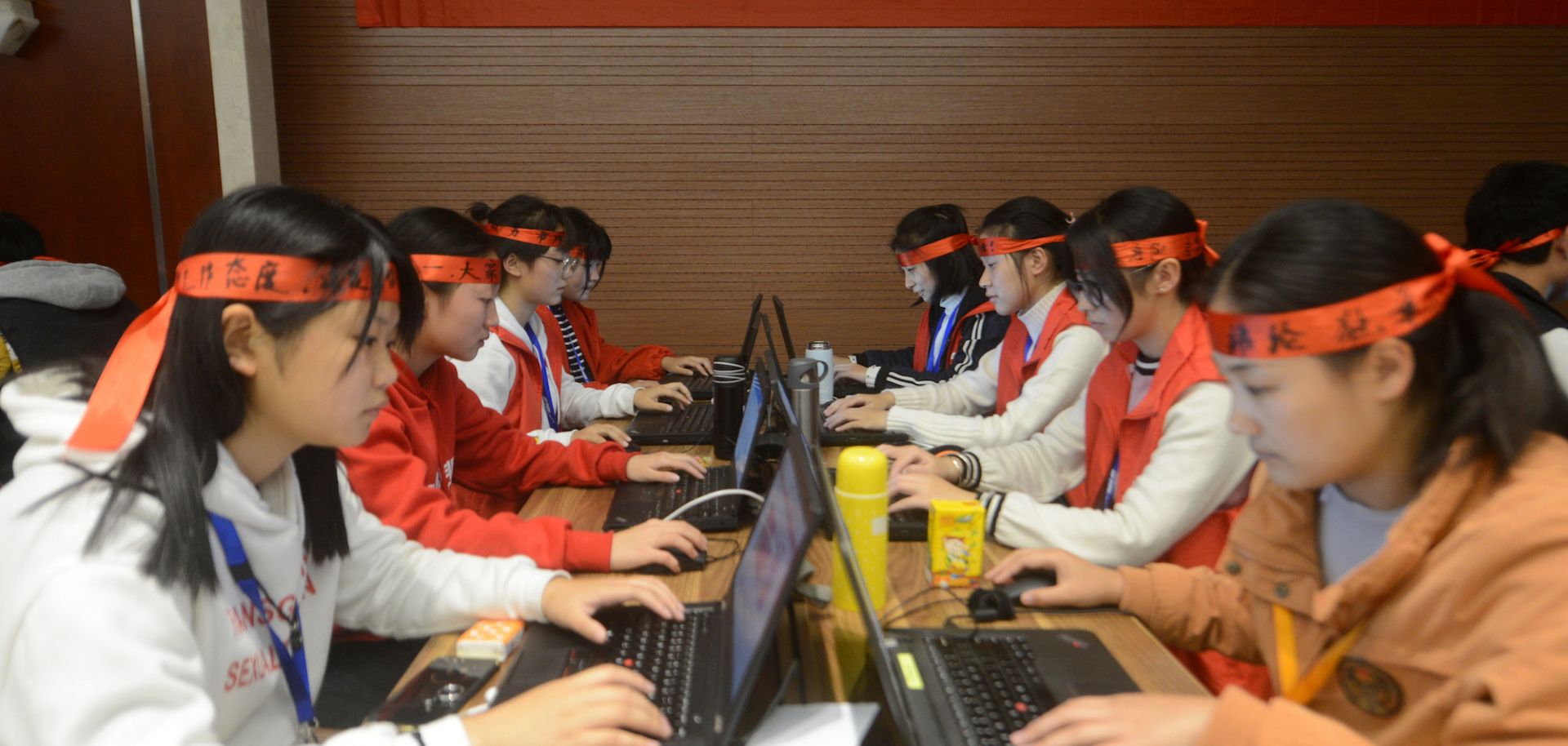ASSESSMENTS
U.S. Tariffs Put China's Economy to a New Test
Jun 5, 2018 | 09:00 GMT

Workers at Chinese e-commerce giant Alibaba prepare for the online shopping extravaganza known as 'Singles Day.' Domestic consumption has become a significant part of the Chinese economy, helping to buffer it somewhat from U.S. tariffs.
(STR/AFP/Getty Images)
Highlights
- Significant U.S. tariffs on trade goods and restrictions on tech investment will complicate China's ongoing economic rebalancing process.
- High national debt levels will constrain Beijing's ability to pump investment funds into the economy in the case of a significant trade blow, which will affect companies and industries that rely on U.S. markets and are already operating on thin profit margins.
- The acute pressure China is facing is only going to harden Beijing's resolve to rapidly develop self-sufficiency in sensitive technological supply chains.
Subscribe Now
SubscribeAlready have an account?
